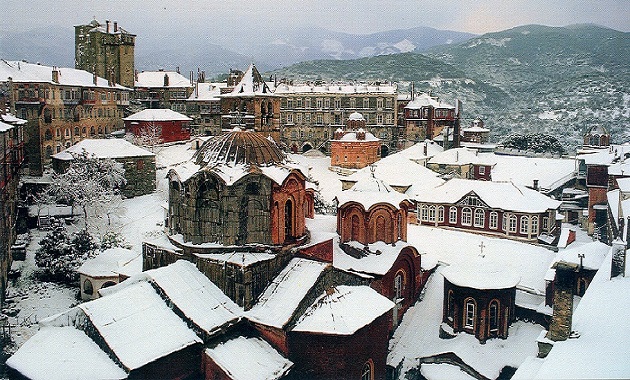Who will not leap for joy and be filled with rejoicing when we have inherited all this grace and these gifts through the love of our Redeemer? And He has not deprived us of the sense of His presence even in this life, but, through the holy sacraments, in the Church, He makes us partakers of the multi-faceted energy of His grace.

The whole of the fullness of the divine revelation is to be found forever in the Church, which is the Body of our Lord, and so the divine will is always known to those who seek it. And the Lord Himself is hidden in the divine commandments, which have themselves been made clear and familiar through the Church: “Indeed, I say to you, whoever receives the one I send receives me, and whoever receives me receives the one who sent me” (Jn. 13, 20). And Saint Maximos mentions that: whoever receives the commandment and observes it, mystically has the Holy Trinity”.
The Lord Himself says, in fact, that: “Whoever loves me will keep my word, and my Father will love them, and we will come to them and make our dwelling-place within them” (Jn. 14, 23). Here, then, is the truth of the words of Saint Maximos. These words of Christ reveal the Trinitarian aspect of divine providence, since the presence within us of God the Word- because of the consubstantiality and indivisibility of the divine persons- also involves the presence of the Father and the Holy Spirit.
As we have emphasized elsewhere, in the Orthodox tradition, dogmas and morals, faith and works are not measured separately. They are simply two forms of the same thing. Saint Cyril of Jerusalem in his Instructions says: “For the path of devotion consists of two things, of correct dogmas and good works. Dogmas without works are unacceptable to God, nor does God receive works which are not carried out without correct dogma”. It is as if we say faithless works and workless faith. The divine revelation is expressed through the divine commandments and these are not articles of the law or stale moral ordinances, but rather the word of God, which was spoken by the incarnate Word of God, Who, for this reason is hidden within His commandments.
So if people wish to find Christ, Who is not only high above in the heavens, nor is only in the bosom of the Father, but also is in every one of His commandments, let them begin from this moment to observe and keep His commandments, and let them be certain that proof of His presence will be perceptible. “Whoever has my commandments and keeps them, loves me. And whoever loves me will be loved by my Father, and I will love them and manifest myself to them” (Jn. 12, 21).
Who does not wish to see, to feel next to them, close to them, within them, our sweetest Jesus? Since this is the desire of all of us, let us begin to observe consciously and precisely our neglected duty towards the divine commandments and let us be assured that our hope will not be put to shame. And this hope is: “Well done, good and faithful servant. You have been faithful over a little; I will set you over much. Enter into the joy of your master”(Matth. 25, 21). Amen.
Monk Iosif, Λόγοι Παρακλήσεως», Ψυχωφελή Βατοπαιδινά 15, pp. 319-332.
http://pemptousia.com